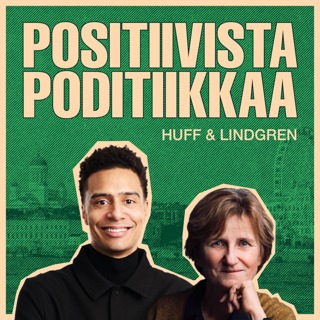
Dip, Duck, Dodge: Bill And Hillary Clinton Delay Their Epstein Related Deposition (10/14/25)
The decision to delay Bill and Hillary Clinton’s depositions in the congressional probe into Jeffrey Epstein has reignited public skepticism over whether powerful political figures will ever face genuine accountability. Bill Clinton’s long-documented ties to Epstein — including flights on the financier’s private jet and appearances in visitor logs — have made him a central figure of interest in the investigation. Yet, despite repeated assurances of transparency, the Clintons remain insulated behind legal maneuvering and procedural delays. Critics argue that such postponements underscore how the justice system bends for the well-connected, turning what should be a fact-finding process into a slow-motion exercise in political optics.The congressional inquiry, billed as a serious attempt to unravel Epstein’s political network, is increasingly viewed as a performance rather than a pursuit of truth. While survivors and the public wait for substantive action, the Clintons’ ability to delay testimony reinforces a familiar pattern — one where power shields itself from consequence. Observers say that unless Congress moves past symbolic gestures and compels full cooperation from all involved, the Epstein probe risks joining a long list of high-profile investigations that end not in justice, but in frustration and doubt.to contact me:bobbycapucci@protonmail.comsource:Bill and Hillary Clinton delay depositions in House Oversight panel’s Jeffrey Epstein probeBecome a supporter of this podcast: https://www.spreaker.com/podcast/the-epstein-chronicles--5003294/support.
14 Loka 14min

Tea, Titles, and Trafficking: Prince Andrew’s Cozy Correspondence With Jeffrey Epstein (10/14/25)
Prince Andrew has become the walking definition of hypocrisy — a royal parasite sitting comfortably in Royal Lodge while pretending “no one is above the law.” The newly unearthed emails to Jeffrey Epstein — where Andrew tells him “we’re in this together” and “we’ll play some more later” — blow his past denials to pieces. They confirm what everyone suspected: that his supposed “cutting ties” was a lie, that he was still fraternizing with a convicted predator, and that he thought his title made him untouchable. The arrogance, the entitlement, the shamelessness — it’s all laid bare. Any other man would’ve been in handcuffs already, but Andrew’s punishment was “stepping back from duties,” which is just PR code for taking a royal sabbatical with full benefits.The whole spectacle is a slap in the face to justice and the people who still believe in it. These emails aren’t just bad optics — they’re the final nail in the coffin of his credibility and the monarchy’s moral facade. It’s not just Andrew’s disgrace anymore; it’s the entire royal bloodline reeking of rot while the system bends over backward to shield him. If “no one is above the law” actually meant something, this man wouldn’t be sipping tea behind palace walls — he’d be answering questions under oath like any ordinary citizen. Until that happens, the phrase might as well be engraved on Buckingham Palace gates in gold leaf, right above the real motto: Accountability for thee, but never for me.to contact me:bobbycapucci@protonmail.comBecome a supporter of this podcast: https://www.spreaker.com/podcast/the-epstein-chronicles--5003294/support.
14 Loka 13min

Mega Edition: Prince William And The Revulsion Brought On By His Uncle Andrew (10/14/25)
Prince William’s disdain for his uncle, Prince Andrew, has reportedly hardened into something close to open contempt. According to multiple royal insiders, William views Andrew as a permanent stain on the monarchy—a man whose arrogance and scandalous ties to Jeffrey Epstein have dragged the family’s reputation through the mud. Sources close to Kensington Palace say William has no interest in rehabilitating Andrew’s image or restoring his public role; if anything, he wants him out of sight entirely. Behind closed doors, William is said to have expressed frustration that Andrew continues to live at the Royal Lodge on the public’s dime, refusing to vacate even as the rest of the monarchy scrambles to modernize its image. Some reports even suggest William has privately discussed “formal exile” once he ascends to the throne, either by stripping Andrew of remaining titles or banishing him from royal estates altogether.William’s approach is said to be strategic—protect the Crown, not the family. He reportedly sees Andrew’s continued presence as a ticking PR bomb, undermining years of work to restore the monarchy’s credibility after the Epstein disaster. At public events, William avoids being photographed near his uncle and has allegedly issued private warnings to Andrew to stay away from high-profile gatherings. Royal commentators describe the situation as icy and irreparable: William respects the institution, not the man. To him, Andrew represents the rot of unchecked privilege—a royal who mistook immunity for innocence. The unspoken consensus is clear: when William becomes king, Andrew’s quiet exile will become official policy.to contact me:bobbycapucci@protonmail.comBecome a supporter of this podcast: https://www.spreaker.com/podcast/the-epstein-chronicles--5003294/support.
14 Loka 24min

Mega Edition: Prince Andrew And The Memoir That Never Was (10/14/25)
Prince Andrew’s long-rumored memoir was supposed to be his comeback—a glossy rewrite of his life story that would reframe him as misunderstood rather than disgraced. Reports indicated that he entertained meetings with ghostwriters and publishing contacts, with ideas circulating that the book would serve as a “royal rehabilitation” project, countering the fallout from his catastrophic Newsnight interview and his connections to Jeffrey Epstein and Ghislaine Maxwell. Yet, the plan quietly collapsed before it began. Advisors, family members, and legal counsel reportedly warned him that such a memoir would backfire spectacularly—exposing him to renewed public outrage and potential legal scrutiny if he contradicted the known record. Publishers, already skeptical of working with him, saw only reputational suicide in print form. The notion that Andrew could publicly reshape history while ignoring his own role in it was viewed as delusional even by insiders.In the end, the “book that never was” became a metaphor for Andrew himself: all arrogance, no accountability. His silence wasn’t noble restraint—it was self-preservation. Every ghostwriter and PR advisor who came near the project realized what Andrew never could—that the public isn’t interested in his justifications, only in justice. He had a chance to come clean, to face the truth on paper the way he refused to on camera, but instead retreated into the royal cocoon that has always shielded him from consequence. His non-memoir stands as yet another failure in a long pattern of cowardice—an unspoken admission that the truth, once written, would have destroyed him far more than any interviewer ever could.to contact me:bobbycapucci@protonmail.comBecome a supporter of this podcast: https://www.spreaker.com/podcast/the-epstein-chronicles--5003294/support.
14 Loka 30min

Mega Edition: The Claims Made Against The Epstein Estate By Sarah Ransome And Virginia Roberts (10/13/25)
a motion for claim of unliquidated and unsecured damages from plaintiffs such as Virginia Giuffre and Sarah Ransome serves as a procedural mechanism to quantify the harm they allege was inflicted upon them by Jeffrey Epstein, Ghislaine Maxwell, and their associated network—including powerful figures like Prince Andrew. “Unliquidated” here means that the financial extent of their injuries—emotional trauma, psychological distress, reputational damage, and loss of opportunity—cannot be measured by a simple, pre-set formula. These motions request that the court hold an evidentiary hearing to determine a fair award based on sworn statements, therapy records, and corroborating testimony. Both women assert that their damages stem from sexual exploitation and trafficking that occurred over several years, facilitated through Epstein’s operation that spanned New York, Florida, and abroad.The “unsecured” portion of the claim indicates that neither Giuffre nor Ransome’s damages are backed by any lien or property guarantee—they are instead dependent entirely on the court’s final judgment and the defendant’s ability (or estate’s ability) to pay. In their filings, both women describe extensive psychological and emotional harm, noting years of ongoing trauma, professional disruption, and personal devastation. The motions effectively signal the final stage of their cases: liability has already been established or admitted, and what remains is for the court to determine the proper amount of compensation. In Virginia, as with federal civil procedure, the court would weigh the evidence, consider comparable awards, and enter judgment accordingly—ensuring that the plaintiffs’ unliquidated claims are formally recognized and compensated through judicial decree.to contact me:bobbycapucci@protonmail.comBecome a supporter of this podcast: https://www.spreaker.com/podcast/the-epstein-chronicles--5003294/support.
14 Loka 21min

Ghislaine Maxwell And Request For Personal Items From Her Accusers
During her criminal trial and related proceedings, Ghislaine Maxwell’s defense team made controversial requests for access to highly personal materials from her accusers, including settlement records, compensation claims, and other private documentation. Her lawyers argued that these items could shed light on the credibility and motives of the women testifying against her, particularly those who had previously received compensation through the Epstein Victims’ Compensation Program. They sought to review unredacted civil settlement agreements between Epstein’s victims and his estate, contending that the financial arrangements might reveal inconsistencies or incentives to testify. Maxwell’s attorneys framed the requests as essential for ensuring due process and full disclosure before trial.The prosecution and accusers’ attorneys, however, condemned these efforts as invasive and retaliatory. They described Maxwell’s motions as thinly veiled attempts to intimidate witnesses and re-traumatize victims by dredging up their most private experiences and personal records. Courts generally sided with the victims, ruling that the defense’s discovery requests went beyond what was necessary for trial preparation. Judges determined that forcing victims to turn over deeply personal materials—such as private correspondence, therapy notes, or confidential settlement files—would cause undue harm and serve no legitimate evidentiary purpose. The battle over these disclosures became one of the more contentious aspects of Maxwell’s defense strategy, further cementing public perception of her as manipulative and unremorseful.to contact me:bobbycapucci@protonmail.comBecome a supporter of this podcast: https://www.spreaker.com/podcast/the-epstein-chronicles--5003294/support.
14 Loka 23min

Ghislaine Maxwell And The Aftermath Of Her Conviction
In the direct aftermath of Ghislaine Maxwell’s conviction in December 2021, the public reaction was swift and emotional. Survivors of Jeffrey Epstein’s trafficking network expressed deep relief that someone of Maxwell’s stature had finally been held accountable after decades of silence and systemic failure. Virginia Giuffre called the verdict a validation of the truth survivors had been telling for years, while prosecutors hailed it as proof that wealth and influence could not insulate someone from justice. U.S. Attorney Damian Williams emphasized that the jury’s decision sent a message that “no one is above the law.” Meanwhile, Maxwell’s legal team immediately began plotting an appeal, arguing that media coverage, procedural missteps, and jury irregularities had unfairly influenced the trial’s outcome. The verdict marked a symbolic turning point, but also ignited fresh questions about why Epstein’s wider circle of collaborators had remained untouched.In the months that followed, Maxwell’s sentencing and subsequent incarceration became the center of renewed public scrutiny. She was sentenced to 20 years in federal prison in June 2022, triggering renewed attention on Epstein’s network and calls for deeper investigations into his remaining associates, including those protected by the non-prosecution agreement from 2008. As Maxwell adjusted to life behind bars, her lawyers filed multiple appeals, culminating in a failed attempt to have the Supreme Court hear her case in 2024. Beyond the courtroom, the conviction intensified global debates about systemic privilege, the failures of law enforcement, and the lingering mystery of Epstein’s death. It also fueled demands for greater transparency—calls that have only grown louder as public faith in accountability continues to erode.to contact me:bobbycapucci@protonmail.comBecome a supporter of this podcast: https://www.spreaker.com/podcast/the-epstein-chronicles--5003294/support.
14 Loka 22min

Ghislaine Maxwell And Her Jury Complaints Compared To The Vanderbilt Case
In comparing the Vanderbilt rape case to Ghislaine Maxwell’s federal sex-trafficking trial, many legal analysts pointed out striking similarities regarding juror nondisclosure and its potential effect on verdicts. In the Vanderbilt case, involving former football players Brandon Vandenburg and Cory Batey, one juror’s failure to reveal he had been sexually assaulted led to the conviction being overturned and a full retrial. Observers drew a direct line to Maxwell’s case when a juror revealed post-trial that he, too, had been a victim of sexual abuse—information not disclosed during jury selection. Defense attorneys seized on the precedent, arguing that such a revelation could create bias and should trigger a new trial. Commentators cited the Vanderbilt retrial as an example of how juror honesty is foundational to due process, especially in emotionally charged sex-crime cases.Yet the two cases diverge sharply in scope and procedure. The Vanderbilt matter was tried under Tennessee state law, while Maxwell’s case was a federal prosecution involving international sex-trafficking allegations and an entirely different standard for overturning verdicts. U.S. District Judge Alison Nathan rejected Maxwell’s motion for a new trial, ruling that although the juror’s omission was “regrettable,” it did not undermine the fairness of deliberations or the integrity of the verdict. The comparison nevertheless underscores a shared legal tension: how courts navigate juror bias in cases steeped in trauma and public scrutiny. While the Vanderbilt case serves as a cautionary tale, Maxwell’s conviction held firm, showing how federal judges weigh such challenges through a stricter lens.Become a supporter of this podcast: https://www.spreaker.com/podcast/the-epstein-chronicles--5003294/support.
13 Loka 22min



















